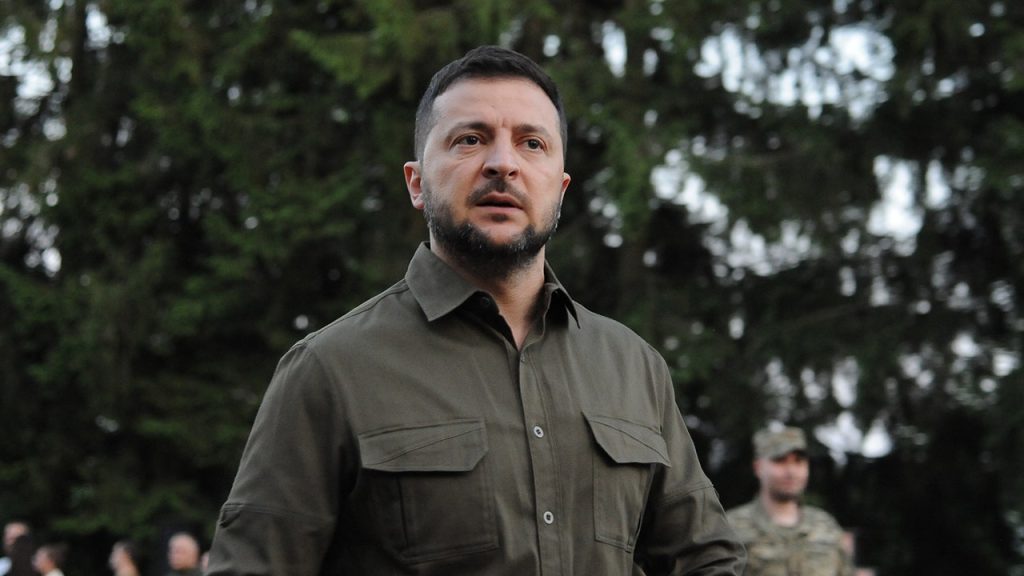Ukrainian President Volodymyr Zelenskyy is urging the U.S. to approve more military funding for his country, warning that without it, Ukraine may lose the war against Russia. Zelenskyy voiced his concerns about the potential consequences of a Ukrainian defeat, suggesting that if Ukraine falls, Russia may target other states next. The U.S. has already provided significant military aid to Ukraine, but Republicans in Congress have delayed further payments, citing the need to consider the financial implications of additional support. Zelenskyy emphasized the urgent need for assistance, stating that the outcome of the conflict in Ukraine could have far-reaching implications for international security.
As Russia continues to carry out missile and drone attacks in Ukraine, targeting both civilians and soldiers, the situation on the ground remains dire. Zelenskyy’s plea for increased military funding comes amidst escalating violence in the region, with no clear end in sight to the conflict. The ongoing attacks by Russia have drawn condemnation from the international community, with concerns growing about the impact of the war on innocent civilians caught in the crossfire. The need for swift action to support Ukraine in its fight against Russian aggression is becoming increasingly urgent.
The debate over additional aid for Ukraine has divided members of the House Freedom Caucus and other conservative lawmakers within the GOP. While House Speaker Mike Johnson has put forward a funding plan, Freedom Caucus Chair Rep. Bob Good has called for any assistance to Ukraine to be accompanied by spending cuts elsewhere and changes to U.S. border policies. Good argued that the U.S. cannot afford to continue borrowing money for overseas conflicts while neglecting domestic priorities, specifically referencing border security. Balancing the need to support Ukraine with other pressing issues is a key point of contention within the Republican Party.
If the funding legislation for Ukraine is approved by the House, it is expected to face less opposition in the Senate, where Minority Leader Mitch McConnell has expressed his support for providing additional aid to Ukraine. McConnell has emphasized the importance of backing Ukraine in its fight against Russian aggression, framing it as a broader issue of defending democracy and international security. The bipartisan support for increased military funding for Ukraine reflects a shared recognition of the strategic significance of the conflict and the need to bolster Ukraine’s position in the face of ongoing attacks from Russia.
The situation in Ukraine has sparked concerns among Central and Eastern European countries, who are marking 20 years in NATO with a renewed focus on the conflict in Ukraine. The war in Ukraine has broader implications for regional security and stability, as neighboring countries closely monitor developments and consider their own defense strategies. The conflict has underscored the importance of international alliances and cooperation in addressing threats to democracy and sovereignty. The anniversary of NATO membership serves as a reminder of the ongoing commitment to collective security and mutual defense among member states, as they navigate the complexities of the evolving security landscape in Europe.
As the debate over military funding for Ukraine intensifies in Congress, the stakes are high for both Ukraine and the broader international community. The outcome of the conflict in Ukraine has significant implications for regional stability, democracy, and security. The calls for increased support for Ukraine reflect a recognition of the strategic importance of defending Ukraine against Russian aggression and upholding democratic principles. The decisions made by lawmakers in the coming weeks will not only impact the course of the war in Ukraine but also shape the future of international relations and security dynamics in Europe and beyond.


